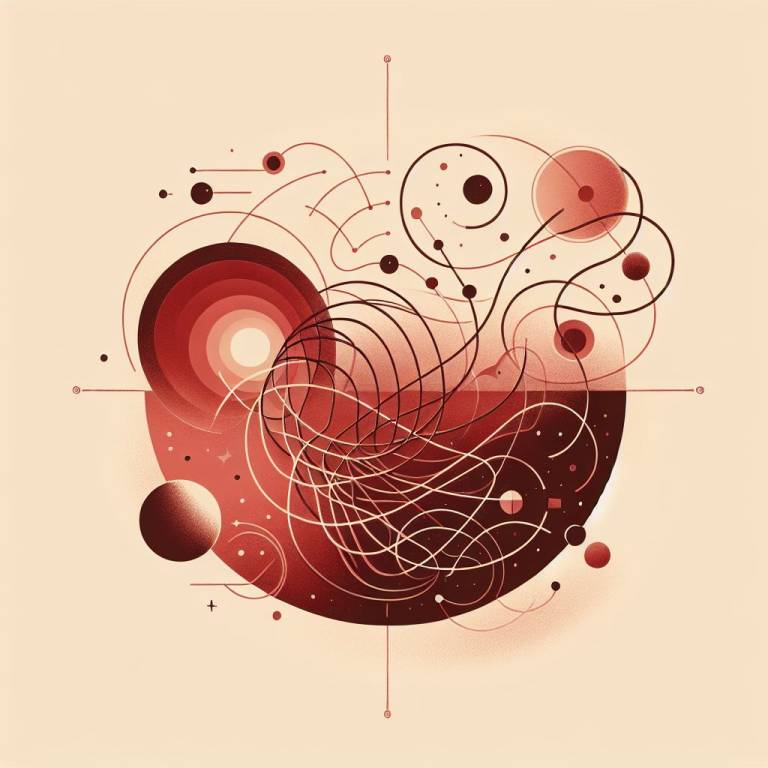Ling and Wight invited us to reflect on what kind of philosophical positions are at the heart of our analysis and to what kind of world-making our scholarship is proposing. Both authors acknowledge the limits that Western modernity has posed on the discipline of IR. Ling (2018, 314) claims that the field of “IR suffers from … epistemic blinkers” due to the legacy of colonialism and imperialism. Following this line, Wight (2019, 64) also argues that owning to the “increasingly interconnected [world], a western vision of IR looks increasingly out of time and place.”
Decentring Western modernity
By utilising philosophical concepts of Daoist trialectics and Advaita-monism in the analysis of global politics, Ling contests the domination of Western thought in laying the ground for IR theorisation. She builds her argument on the necessity of interconnectedness in global political analysis so as to bridge difference by experiencing the Other with help of epistemic compassion. In an undoubtedly ambitious intellectual endeavour, Ling demonstrates how different actors of world politics – ranging from individuals and transnational communities to states – are linked. She thus makes a case for the interrelation of the micro – macro and the global – local. To illustrate her argument on the entanglement of different actors in world politics, Ling uses the poetic metaphor of the pool where different modes of knowing interlace and flux. Ling (2018, 327) describes that “[l]ike water, multiple worlds must flow freely to stay vibrant; in IR terms, this means interacting with Difference and hybridizing with Others.”
In her analysis, Ling reframes the discussion on the “rise of China.” She suggests that the juxtaposing of China with the “West” is artificial and imprecise. Following daoist trialectics, i.e. the parallel presence of duality and non-duality, she consequently argues that there is no clear distinction between the China and the West. She exemplifies her claim by highlighting the presence of international entanglements between China, Western states and local political communities such as the Chinese diaspora and expatriates from British colonies in South and Southeast Asia (Ling 2018, 329). Essentially, Ling argues that these immigrant communities have historically been already influencing China and Western states thereby contesting the clear-cut distinction between them (ibid.). In addition, the article directs the attention of the reader to the parts of the world that reside outside of the traditionally understood dominant powers of international relations. Ling pleads for the importance of not treating the rest of the world in IR scholarship “as a mere afterthought, at best, or a playground for the powerful, at worst” (Ling 2018, 332).
Several members of our group found Ling’s article invigorating and appreciated the objective of introducing philosophical approaches that destabilise Western modernity. In concrete terms, Ling applied the concepts of darsana, dharma and ayurveda to illustrate her argument on interconnectedness and compassion as a starting point for global political analysis. Moreover, she put forward her argument on the simultaneous interaction of apparently opposing elements in politics through the examples of daoist trialectics, the concept of yin-yang and the metaphor of water. Ling (2018, 324) describes that “[d]espite being a porous, malleable substance, water can break rocks.” By illustrating that water is parallelly both weak and strong, Ling invites the reader to ponder the meaning of both-and in international relations.
Embracing the uncomfortable
Although thought-provoking, Ling’s article left many members of our reading group feeling uneasy. This is not necessarily a critique. On the one hand, evoking disquietude can be seen as a merit. We discussed that Ling perhaps purposefully wrote in a way that would shake the philosophical foundations of the discipline of IR that has hitherto been strongly built upon Eurocentric metatheoretical bedrock. Feeling uncomfortable can be an important door to curiosity and deeper inquiry on the underlying worldview(s) of our research (see Åhäll 2018). One of our group members drew a parallel to Sara Ahmed’s (2014, 147) queer theory by stating that “[n]ormativity is comfortable for those who can inhabit it”. Therefore, feeling uncomfortable is a useful compass, pinpointing where our norms and worldviews are being questioned.
Yet, some of the members of the reading group felt uncomfortable because of the harshness and essentializations in Ling’s language. This was present among others in the way she described the Westphalian state proponents and Chinese constructivists as hypermasculine. There seemed to be a contradiction between the notion of “epistemic compassion” that Ling claims to further, and the actual way she engages with the object of her critique. We discussed whether this has to do with the “gladiator style” argumentation that we learn in the academia. We pondered what it would mean for getting published if we did things differently i.e. engaged in more compassionate scholarly debate.
What about compassion?
In the beginning of the article, Ling introduces epistemic compassion as the central guideline to navigating the international politics of difference and otherness. Yet, after doing this, Ling’s article takes somewhat different direction, which leaves the engagement with the concept of epistemic compassion somewhat vague. A more precise definition of epistemic compassion would have been helpful to guide the reader through the article. We would have also appreciated a deeper involvement with the empirical case of the China-West dichotomy to illustrate her point on epistemic compassion.
On yet another critical stand, Ling seemed to be reproducing binaries (such as heart and mind; Western and non-Western epistemologies) that to our notion, might be even in conflict with her argument on interconnectedness and simultaneous presence of apparent opposites. Although it makes perfect sense to discuss Western modernity and its epistemic violence, it is also important to recognize that there is no such homogenous a thing as “Western knowledge.” In the West (or Global North), there are different, often also contradicting, strands on knowledge production and world-making. We would have wished for a more nuanced engagement with them.
Ling (2018, 332) suggests that IR needs to break free from “Westphalia’s deadly deadlock.” To accomplish this, she argues, “we need spiritual emancipation, not just analytical, political, or ethical.” Spirituality is also a central epistemological starting point for scholars of Black Feminism as well (e.g. Motta et al. 2023). The notion of spirituality was challenging for some members of our group, as the word itself seems to contest the known idea what it means to be scientific. This was a moment where Ling’s plea for epistemic compassion towards her own article became palpable (Ling 2018, 315). We discussed that it would help the reader navigate the major concepts of the article (darsana, advaita-monism, dharma, ayurveda, daosit trialectics etc.) that stem from several different cosmologies by comparing them with the established Western concepts of philosophy of science. Yet, the challenge in this proposal is that it would centre the West, again. How is it possible to overcome this challenge? Is Ling inviting us to activate our epistemic compassion exactly by abundantly using concepts that have not yet been incorporated in the established metatheory of IR? This led us to contemplate whether as scholars it is possible to write about empiric cases of the international politics if the research participants are socialised in a completely different cosmological worldview than the scholar.
Furthermore, the notion of spirituality in (IR) scholarship elicited a debate about ontological mysticism in our group. One member of the group critiqued Ling’s approach to be an echo from the Realism-Idealism debate. According to them, Ling seems to suggest that “truth is to be found from old scriptures, just like in positivism where truth is also in the world simply to be found with the right scientific methods”. Notwithstanding, all texts —scriptures included — are political, not neutral. Therefore, it would be helpful for the reader if the author had incorporated a notion on the politics behind the scriptures in her analysis. From this perspective it does not seem quite consistent that Ling juxtaposes Westphalian state system with Eastern spiritualities. After all, the Westphalian peace had to be made to mitigate religious wars in Europe (Osiander 2001, 270—271).
Insomuch as Ling’s article evoked intense debate in our reading group, an appreciation of her intellectual endeavour was also present. By insisting on interconnectedness as a starting point for political analysis, Ling invited us to pay attention to that which is reparative, mutual and life giving in world politics. Considering the persistence of violent conflicts, oppression and environmental crisis this approach might seem naïve at first glance. Yet, by presenting the practices and related philosophies of darsana, dharma and ayurveda as given, Ling speaks back to the Eurocentric scholarship. What are the philosophical positions and underlying cosmologies that are present, often uncommented, in the IR scholarship of Western modernity? How are the underlying cosmologies of the Western modernity influencing what is paid attention to? How would the scholarship of IR change if more attention was given to interconnectedness and compassion instead of conflict and competition, or maybe even the trialectical entanglement of them all?
Corrective moves of epistemology
The second article of our discussion embarks on its line of reasoning by lamenting the “structural impediments” of IR that hamper the integration of alternative “non-western voices” into the discipline (Wight, 2019, 65). In addition to western-infused universities, journals and the dominance of English in the academia, Wight (2019, 63, 69) argues that the misunderstanding and misuse of epistemology in IR creates further structural boundaries to the diversification of the voices of IR. Wight is convinced that the misunderstood relationship to epistemology is one of the major reasons behind the disciplinary fragmentation of IR. He therefore calls for the reconsideration of the (in his view, faulty) ways epistemology is applied and spoken of in IR. This, according to Wight is necessary, if IR should become more accessible to theoretical openings and contributions that draw from non-western (or more-than-western) worldviews (ibid., 66).
Wight traces the misunderstandings of epistemology in the dominant IR back to the debate between the positivists and the post-positivists. This, according to Wight, discloses why positivism came to be seen as an epistemology rather than as a philosophy of science that it actually is. He describes the internal dynamics of IR to be a “fragmented adhocracy” where scholars organise themselves to “epistemological sect[s]” (ibid., 69, 77) This, according to Wight, stems both from high technical and strategic and task uncertainty. In other words, from high insecurity to what methods should be used and what topics count as meaningful pursuit of research. Wight maintains that “[t] his leads to sub-optimal outcomes where scholars treat epistemologies as something one belongs to rather than something one uses” (ibid., 77, italics added). Ultimately, Wight has a very pragmatic, even playful, approach to epistemologies: he sees them as “supports” to further the knowledge claims made by the researcher, as combinable devices that operate in a continuum (ibid., 73).
Bridging difference through integrative pluralism
Wight thus maintains that oftentimes identity-bound metatheoretical and epistemological quarrels in IR hinder a more constructive debate on what are important subjects and problems to study IR. To overcome this impediment, Wight (2019, 65) calls for integrative pluralism: “[W]e need to go beyond a mere engagement with the other, and towards a situation in which we genuinely integrate their insights into the substantive knowledge base of the field.” Wight contrasts integrative pluralism with anything-goes-pluralism, where pluralism is being seen as an important goal of scientific undertakings, and with approaches that embrace theoretical diversity only on the premiss of methodological unity (ibid. 67).
The reading group saw great value in Wight’s attempt to set straight what is ‘amiss’ with IR’s common understanding and application of the term ‘epistemology’. One member of the group reflected that the “big concepts [of metatheory are often] misused or not elaborated.” We were reflecting that this might well be one of the reasons why so many early-career scholars in our reading group feel insecure about metatheory and philosophy of science in IR. Wight’s take on integrative pluralism was also deemed as a welcomed opening to the debate on disciplinary fragmentation by the group. Wight provides clear wordings and categories that aid in coming into grips with the vast field of different theoretical and methodological approaches.
Appropriation or integration?
Critique on Wight’s article followed three lines. First and foremost, we discussed whether Wight had somewhat appropriated the post-colonial discourse on the integration of non-western voices to the discipline. We were also waiting for the moment when these voices would actually come in. Somehow this never happened, and the voices the article most cited and referred to were part of an established Western canon of the IR. In other words, Wight is a great proponent of integrative pluralism on the theoretical level, yet he does not give guidance how to start this engagement.
Secondly, given that scholarship is also performative, we would have hoped Wight to bring attention to the citation practices and references he uses. As examples, Wight uses Derrida and Foucault and, for comparison, he discusses the differences between British and US-American academia. More diverse examples from the vast intellectual history and geographical diversity of international thought would have made his argument stronger. Thirdly, Wight’s line of argumentation was very much human-centric. Considering the discussions about epistemology from the perspectives of more-than-human and new materialism that is present in the discipline, Wight seemed to leave out an important perspective.
Nevertheless, Wight’s article was deemed very useful in navigating metatheoretical debate. As a group, we got also curious about actively searching for examples of integrative pluralism. It might be most productive to read work where this engagement with the difference is already concretely incorporated into research practice instead of reading theoretical accounts on integrative pluralism. Now we are thus faced with the query on how to find these texts that already manifest the integrated pluralism?
Both articles gave us useful impulses to consider when navigating our scholarly practices. The texts seemed to speak to each other in very direct means. Ling’s article served as a direct example on the possibilities and challenges of theoretical contributions in IR that draw from non-Western cosmologies and thereby contest the core assumptions on which the analysis of IR is based. At the same time, Wight gave concrete proposals how to position ourselves in the vast field of different pluralisms so as to take a stand against fragmentation through engagement.
Facing the “sacred cow” of metatheory
During the meeting it became apparent that both concepts, philosophy of science and metatheory, frequently evoke insecurity, confusion and even pressure in young scholars navigating their PhD journey. This provoked us to question the ways these concepts are taught in our university and the IR community in general. One member of the group prompted that teaching of metatheory can be considered failed if students are left with the sense of confusion and doubt. We concluded that we want to continue the discussion on metatheory with a pragmatist twist so as to dismantle the “sacred cow” and make it more accessible as a support for scholarly practice as it should be.
References:
Ahmed, Sara (2014). The Cultural Politics of Emotion. Second edition. New York: Routledge.
Ling, L.H.M. (2018). Heart and Soul for World Politics: Advaita Monism and Daoist Trialectics in IR. International Relations of the Asia-Pacific. Vol. 18, 313–337. https://doi.org/10.1093/irap/lcy004
Motta, Sara C., Norma L. Bermudez Gomez, and Elizabeth F. Miranda. “An Erotic and Poetic Political Subjectivity of the Sacred (En)Flesh(Ed).” Globalizations ahead-of-print.ahead-of-print (2023): 1–20. Web.
Osiander A. (2001). “Sovereignty, International Relations, and the Westphalian Myth”. International Organization. 55(2):251-287. doi:10.1162/00208180151140577
Åhäll, L. (2018). Affect as Methodology: Feminism and the Politics of Emotion. International Political Sociology 12(1): 36–52. doi:10.1093/ips/olx024.
Wight, C. (2019). Bringing the outside in: The limits of theoretical fragmentation and pluralism in IR theory. Politics, 39(1), 64-81. https://doi.org/10.1177/0263395718815784





